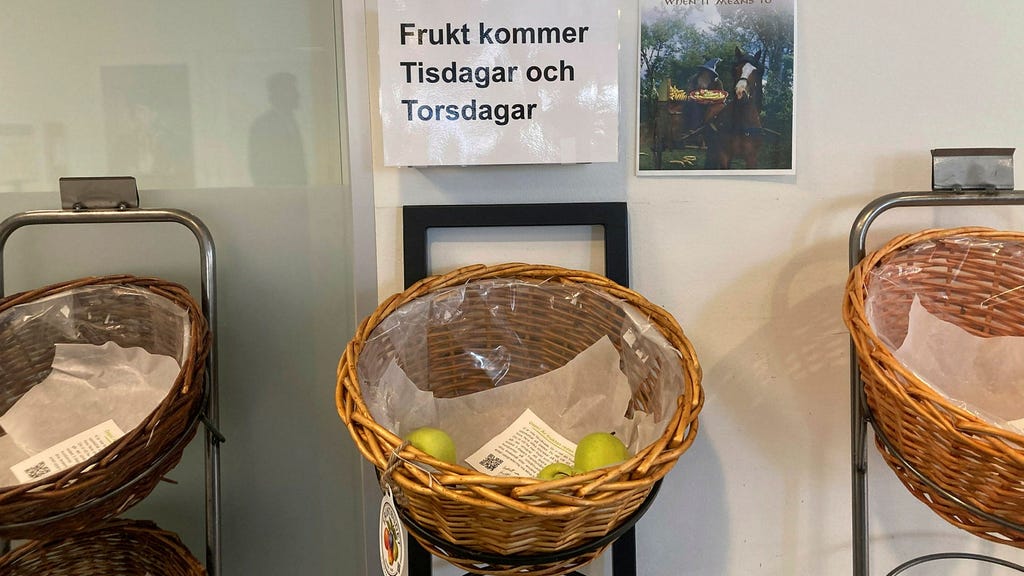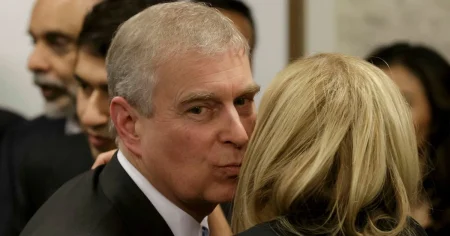On Tuesdays and Thursdays, a palpable anxiety sweeps through the workplace, cloaked like a fog. The air is thick with murmurs and speculations: ”Has it arrived yet?” ”I heard it’s been canceled today!” ”Will it come since the long weekend is approaching?” ”Pernilla said it had arrived, but that’s not true; I checked myself.” These whispers create a sense of anticipation that replaces normalcy, as colleagues eagerly await the arrival of a special kind of delivery.
Finally, the moment of hope arrives as coworkers emerge from the corridor with their bananas and apples, cheeks flushed from excitement – almost as if they were in a state of euphoric joy. The rumors have proven true; the company’s fruit basket has indeed arrived, much to everyone’s delight. The sight of gleeful employees with their colorful snacks resembles the innocent happiness of puppies, showcasing how something seemingly simple can bring so much joy amidst a typical workday.
However, the author finds it perplexing how such a trivial event can stir such enthusiasm. There’s a clear disconnect between reality and perception. “Dear colleagues,” I long to proclaim, “You may not believe this, but just a few meters away, there are shops selling the same fruits for approximately 0.01 percent of your monthly salary—every single day.” People seem to behave as if the fruits were scarce commodities, akin to living in Soviet-era Murmansk, where bananas were strictly rationed. This exaggeration raises questions about the nature of value and satisfaction in modern life.
In these moments of fruit-induced frenzy, thoughts drift towards Graham Greene’s story of Doctor Fischer of Geneva. Fischer is a cynical character who routinely invites his wealthy friends to dinners, where they endure deliberate humiliation and mockery. The catch lies in his conclusion, offering all guests extravagant gifts – a random emerald, a luxury watch, or even a sports car for an actor. Despite subjects being capable of buying such items on their own, the glee comes from the act of receiving, bolstering the concept of human value derived from free offerings rather than the objects themselves.
This dynamic speaks volumes about human nature and the psychosocial triggers associated with gift-giving and the thrill of obtaining something at no cost. The workplace fruit basket transforms an ordinary office day into a significant event, generating a sense of shared experience and collective joy among employees. It illustrates how even minor pleasures can temporarily elevate stress and bring about a sense of camaraderie in the often mundane environment of work, contributing to positive morale and community bonding.
Ultimately, these trivialities showcase a deeper human truth: that the allure of receiving free items, no matter how inexpensive, can overshadow practicality and logic. This phenomenon not only highlights our collective longing for affirmation but also nudges us to reflect on what gives our lives meaning. While fruit may seem insignificant, it serves as a reminder that, sometimes, it’s the simplest joys which spark the greatest happiness, revealing much about our values and societal norms in a consumer-driven world.














